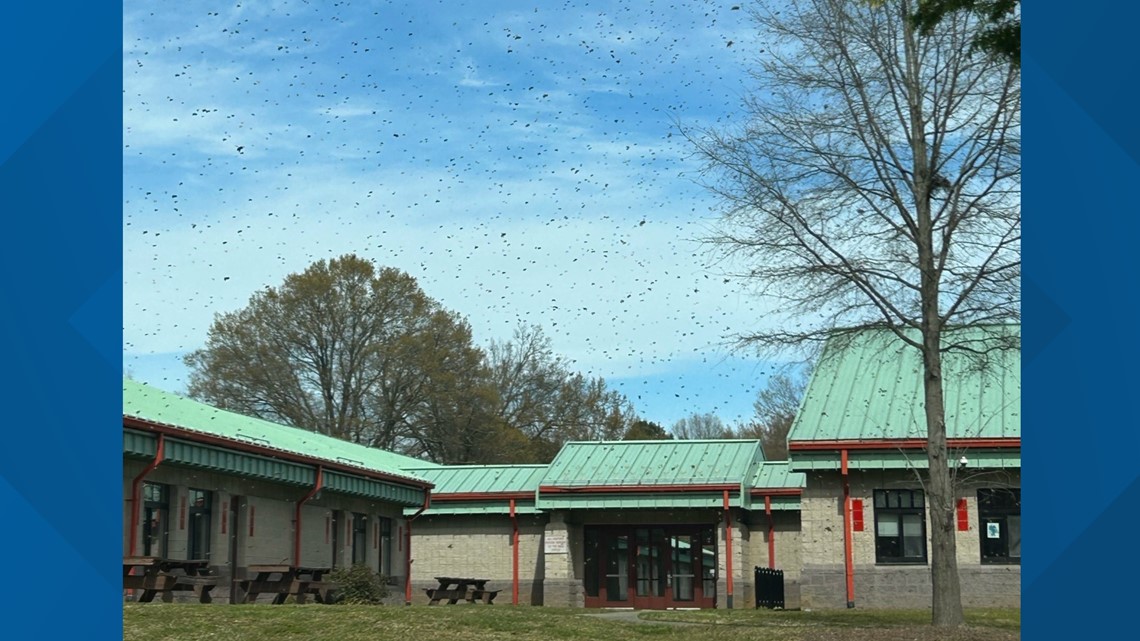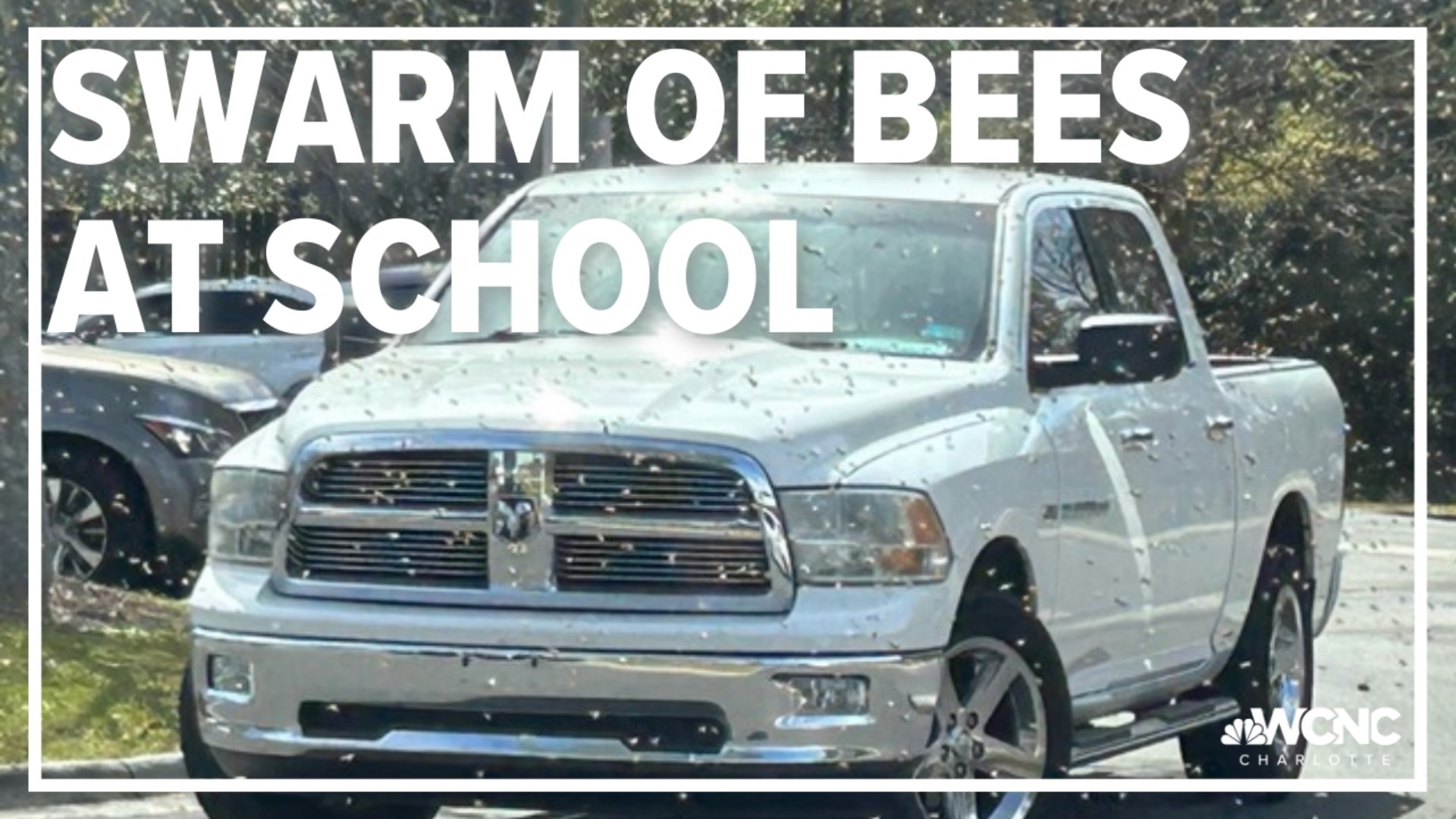CHARLOTTE, N.C. — Parents in the pickup lines at Dilworth Elementary School's Sedgefield campus Tuesday afternoon weren't just met by their kids. Pictures and video shows swarms of bees in the parking lot and around the building.
Ashley Daley, a parent and former WCNC Charlotte reporter, was there at dismissal time and said the insects were everywhere.
Turns out it's the season for buzzing, and people around the Charlotte area can expect to see more swarms, even in their own backyards.
Justin Orders, a beekeeper in Mecklenburg County, said March usually kicks off "swarm season," when swelling bee populations usually leave the hive for more space.
"There's one queen in a hive," Orders said. "That queen will leave, and she will basically order or direct maybe a half of the population of that hive to that new location."
While the swarms can look scary, he said this event usually sees bees at their most "docile."
"In that time, when they're moving ... it looks like chaos," Orders said. "If you do see this, don't be afraid."
"They're actually at their most docile and honestly, frankly, confused," he added. "They're kind of drunk on the pheromones of the queen."
CMS media relations specialist Eddie Pérez confirmed what Orders said when WCNC Charlotte reached out.
"Apparently the bees are following the Queen from spot to spot looking for a new home," Pérez told WCNC Charlotte. "During this swarming period, the bees are typically not dangerous and are just working to stay with the queen bee. The campus was reviewed this morning and the queen bee and the swarm has moved on to a new location and no longer at Dilworth."
Orders said in the Charlotte area, swarm season usually kicks off in mid-March, but this year, warmer than usual temperatures have prompted an early start, closer to the beginning of the month.


If someone sees a swarm that has started to cluster around an object, whether it's a car, a tree, or part of a building, Orders recommends taking note and reporting it to local beekeepers.
Mecklenburg County has a beekeeper's association where people can look up their closest expert.
"Someone will be able to come out and check out what's going on and try to get the swarm," Orders said. "We don't want to hurt the bees. We don't want to kill the bees or cause them any harm."


Contact Vanessa Ruffes at vruffes@wcnc.com and follow her on Facebook, Twitter and Instagram.

